Im filler content, look at me go.
Im filler content, look at me go.
Pest Concern
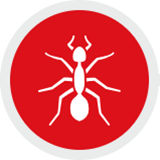
While the most effective way to prevent or address an ant infestation is to call in pest control professionals, you can also try these do-it-yourself methods:
Ants are driven by a search for food, water, and shelter. While it may be impossible to stop every ant, following some basic guidelines can help prevent an invasion:
Pest Concern
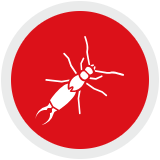
Earwigs found indoors can be swept up and thrown away. While this resolves the immediate issue, it does not address hidden eggs and nymphs. Do-it-yourself insecticide treatments can be used both inside and out, but if not administered properly, they have the potential to drive earwigs into untreated areas in your home. The most effective and safe way to eliminate earwigs is to work with a pest control professional.
Earwigs are nuisance pests that can invade your home and yard. These preventative techniques may help avoid or reduce the presence of earwigs:
Pest Concern
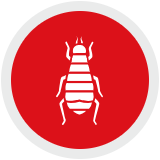
Once you’ve spotted a flea, act quickly! The presence of a live flea means there are likely eggs and pupae nearby. Most do-it-yourself solutions target adult fleas but do not prevent those in earlier stages from developing. To minimize the spread of fleas, follow the preventative steps we’ve outlined. However, a flea problem can be difficult to control, so your best bet is to hire a professional exterminator.
Fleas multiply quickly, so the best way to manage an infestation is to stop it before it happens. These guidelines can help keep your family, pets, and home free of fleas:
Pest Concern

Once you’ve spotted a flea, act quickly! The presence of a live flea means there are likely eggs and pupae nearby. Most do-it-yourself solutions target adult fleas but do not prevent those in earlier stages from developing. To minimize the spread of fleas, follow the preventative steps we’ve outlined. However, a flea problem can be difficult to control, so your best bet is to hire a professional exterminator.
Fleas multiply quickly, so the best way to manage an infestation is to stop it before it happens. These guidelines can help keep your family, pets, and home free of fleas:
Pest Concern
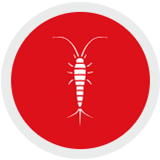
Should you identify the presence of silverfish in your home, these do-it-yourself solutions may give you some relief:
Often, destruction done by silverfish is attributed to moths or other insects, allowing the real culprit to continue to reproduce until discovered. A professional pest control service can discern the source of damage and treat appropriately and effectively.
Like most insects, silverfish seek out a comfortable environment with plentiful food sources. The following measures can help to decrease the likelihood of a silverfish infestation:
Pest Concern
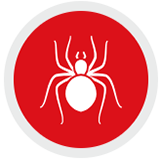
Do-it-yourself spider treatments can be ineffective and potentially toxic to people and pets if not administered correctly. With so many varieties, it can be difficult to determine whether a spider is potentially harmful or helpful. The best way to prevent or address a spider infestation is to contact a pest control professional who can identify the type of spider and the most effective approach to treat them.
Spiders are ubiquitous and hard to eliminate completely. However, preventative measures can be taken to minimize spiders in and around your home:
Pest Concern
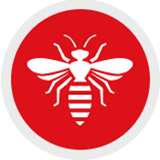
Insecticide sprays designed for bees, wasps, and hornets can be effective when they make contact with the insect. However, they can also irritate a nest, causing it to become more active. Also, bees are important pollinators that help our crops grow, but they are on the decline worldwide. It is advisable not to kill the bees if possible. Because of the high degree of danger associated with stings, the best way to handle a bee, wasp, or hornet issue is to contact a licensed pest professional who can remove or relocate the nest.
Bees, wasps, and hornets can be good for the environment but, in large numbers, they may introduce risk to your family and property. The simple guidelines below can help you avoid a bee or wasp infestation or sting: